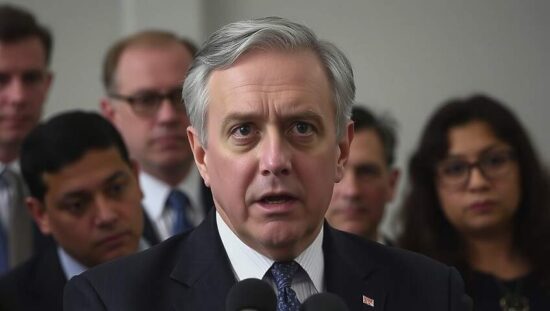Concerns are mounting within the German Social Democratic Party (SPD) regarding the recently reached agreement between the European Union and the United States to resolve trade disputes. Several leading figures are voicing criticisms, particularly concerning the potential impact on key European industries.
Achim Post, SPD Deputy Leader and Chair of the party in North Rhine-Westphalia, cautioned against what he termed a “policy at the expense of our key industries” describing it as “toxic”. He warned that maintaining tariffs of 50 percent on steel and aluminum would place a significant burden on domestic industries.
Echoing this sentiment, Esra Limbacher, General Secretary of the SPD in Saarland, criticized European Commission President Ursula von der Leyen, suggesting the deal was struck “on the backs of the steel industry”. Post and Limbacher are jointly calling for the German government to convene a summit focused specifically on the steel sector.
Sebastian Roloff, the SPD’s spokesperson for economic policy in the Bundestag, expressed broader reservations about the EU’s position in international trade. While acknowledging that the concessions made are a welcome improvement over the tariffs initially threatened by the Trump administration, he deemed the current state of negotiations, particularly in steel and pharmaceuticals, “very difficult to digest”. He stressed the need for further revisions at the earliest opportunity.
Hildegard Müller, President of the German Association of the Automotive Industry (VDA), while characterizing the agreement on auto tariffs as “an improvement over the current situation” issued a stark warning about the implications for European industrial competitiveness. She noted that the German automotive industry is already facing considerably higher tariffs – 27.5 percent – and that the revised deal, while a step in the right direction, will still burden the European economy with billions.
Müller highlighted concerns about the impact on investment and consumers. The agreement arrives at a crucial juncture for the German automotive industry, amidst its ongoing transformation towards climate neutrality and digital mobility. She voiced anxieties about potential job losses, emphasizing the continued pressures on businesses. Furthermore, she suggested the deal would negatively affect US consumers by driving up prices.
Müller advocated for political reforms to enhance the competitiveness of the European Union, urging the EU to prioritize internal strengthening. She also commented on the opening of the EU market for US cars, noting that two-thirds of cars imported from the United States into Germany are manufactured by German companies, a factor that mitigates the negative impact but doesn’t negate the overall burden.
Looking beyond the immediate tariff reductions, Müller suggested a potential shift in production to the United States, but cautioned that such moves are symptomatic of deeper structural problems within the European Union, citing excessively high energy costs, labor expenses, taxes and regulations as significant inhibitors to competitiveness.





